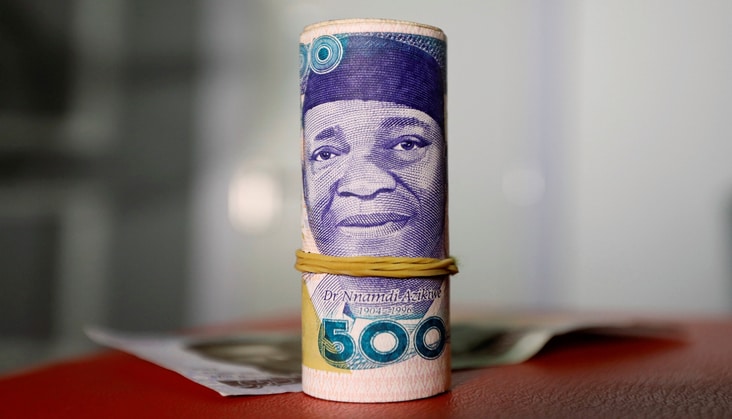Hello there,
Welcome to a new week. Last week was a big one for us as we changed our brand identity and doubled down on making our publication, a spot where the best ideas converge. In view of that, we’ve changed our sender email address, please add this new email to your email list.
Ps: We apologise for the missed newsletter on Friday. This was due to an unexpected issue that prevented it from being sent. We’ve resolved the problem and will ensure this doesn’t happen again. 🙏🏾
What’s next for Binance in Nigeria?
🍔Quick Bite: Last week, the Nigerian government ordered the release of Tigran Gambaryan, the Binance executive and former US federal agent imprisoned in the country since February. What’s next for the world’s largest cryptocurrency exchange (by trading volume) in Nigeria?
🧠 The Breakdown
“We are concerned that certain practices go on that indicate illicit flows going through a number of these entities, [they are] suspicious flows at best. In the case of Binance, in the last one year, $26 billion has passed through Binance Nigeria from sources and users who we cannot adequately identify.”
— Olayemi Cardoso, Governor of the Central Bank of Nigeria
At the first monetary policy review (MPR) meeting in 2024, the Nigerian CBN Governor (indirectly) shared the clearest explanation as to why two Binance executives had just been detained in the nation’s capital.
Cardoso who had spent five months in office making efforts to shore up a dwindling economy, had recently devalued the Naira causing the currency to weaken significantly, reaching a new low of ₦1,537 per 1$ — a 44.5% decline month on month.
In the bid to improve the state of the economy, the CBN governor initiated measures to “take charge of [Nigerian] markets,” and Binance was a casualty. This was the beginning of a lengthy public battle between the Nigerian government and Binance.
Back story: Following their arrival in Abuja, Nigeria’s capital city on February 25, Binance executives Tigran Gambaryan (US citizen) and Nadeem Anjarwalla (UK-Kenyan dual citizen) met with Nigerian officials to discuss the government’s recent restrictions on cryptocurrency exchanges. However, the situation escalated shortly after. Gambaryan and Anjarwalla were detained, their passports seized and held by the National Security Agency.
Shortly after, both individuals were charged by the Economic and Financial Crimes Commission (EFCC) with tax evasion and money laundering involving over $35 million. While Anjarwalla reportedly fled to Kenya in March, Gambaryan remained detained.
Binance appealed to anyone who cared to listen and even got the US government involved. Yet, the Nigerian government doubled down on the alleged money laundering case, with the Nigerian Federal Inland Revenue Service opening four tax-related charges against the exchange, asserting that Binance had failed to register with local tax authorities.
Eight months after the arrest, it appears Binance won the case with EFCC lawyer Ekele Ihenacho disclosing that diplomatic arrangements played a role in securing Gambaryan’s release.
Where will Binance go from here?
Binance which has always taken an aggressive approach towards expanding its operations globally, is no stranger to protracted legal battles.
Currently, Binance has about 235 million registered users in over 180 countries. The list of countries where Binance is allowed to operate keeps fluctuating as many countries struggle with how to regulate cryptocurrencies, leading to inconsistent and often restrictive policies. It’s safe to say regulatory uncertainty is a feature of the growing crypto space which recently saw monthly active addresses reach 220 million (an all-time-high), a figure reminiscent of the total number of internet users globally in 1998.
With Nigeria being one of the fastest-growing crypto markets in the world, there’s no sense that Binance is backing down anytime soon. Despite pulling out its peer-to-peer (P2P) trading feature for Nigerian users and still facing money laundering and tax evasion charges.
“With a young, tech-savvy population and a strong interest in digital finance, Nigeria is well-positioned to leverage blockchain technology to address economic and social challenges,” Binance CEO Richard Teng wrote on X after Gambaryan’s release. “We look forward to playing a constructive role in that effort.”
Binance will take a cautious approach in Nigeria, just as other other major exchanges such as KuCoin and Coinbase which have maintained a distance — with KuCoin suspending P2P trading in Nigeria in May.
The exchange isn’t keen on joining Nigeria’s SEC crypto program and would rather watch from the sidelines as the country’s regulators decide what to do next. An improvement in Nigeria’s exchange rate (currently $1/₦1,700) could turn the tide, but that’s not in Binance’s control.
📈 Trending Stories
Here are other important stories in the media:
- Nigerian Uber and Bolt drivers demand a greater cut of ride-hailing companies’ estimated ₦36 billion annual revenue
- How Mayokun Ogungbola ditched law to become a world-class product designer
- Stripe acquired stablecoin platform Bridge for $1.1 billion in hopes of building “the world’s best stablecoin infrastructure.”
💼 Opportunities
Jobs
We carefully curate open opportunities in Product & Design, Data & Engineering, and Admin & Growth every week.
Product & Design
- Seismic Consulting Group — Product Manager, Abuja
- Trustcrow, Product Manager, Hybrid
- Invisible — Senior Product Manager, Remote
Data & Engineering
- 2U – Senior Technical Project Manager, Capetown
- Jumia — Senior Engineering Manager, Kigali
- OneLocal — Data & Analytics Engineer, Remote
- Oyster — Senior QA Analyst, Remote
- LyRise — Senior Data Engineer – Azure Expert, Egypt
- DataKriB — Machine Learning/AI Engineer, Remote
Admin & Growth
- Meta — International Product Growth Manager, Nigeria, Remote
- Skale — SEO Strategist, Remote
- Appwrite — Growth Marketer, Remote
- Palo Alto Networks — Regional Sales Manager, West Africa, Remote
🚨 The Week Ahead
Ogun Digital Summit – October 29 – November 1, 2024, Ogun
The Africa HealthTech Summit – October 29 – 31, 2024, Kigali
Get passive updates on African tech & startups
View and choose the stories to interact with on our WhatsApp Channel
Explore




